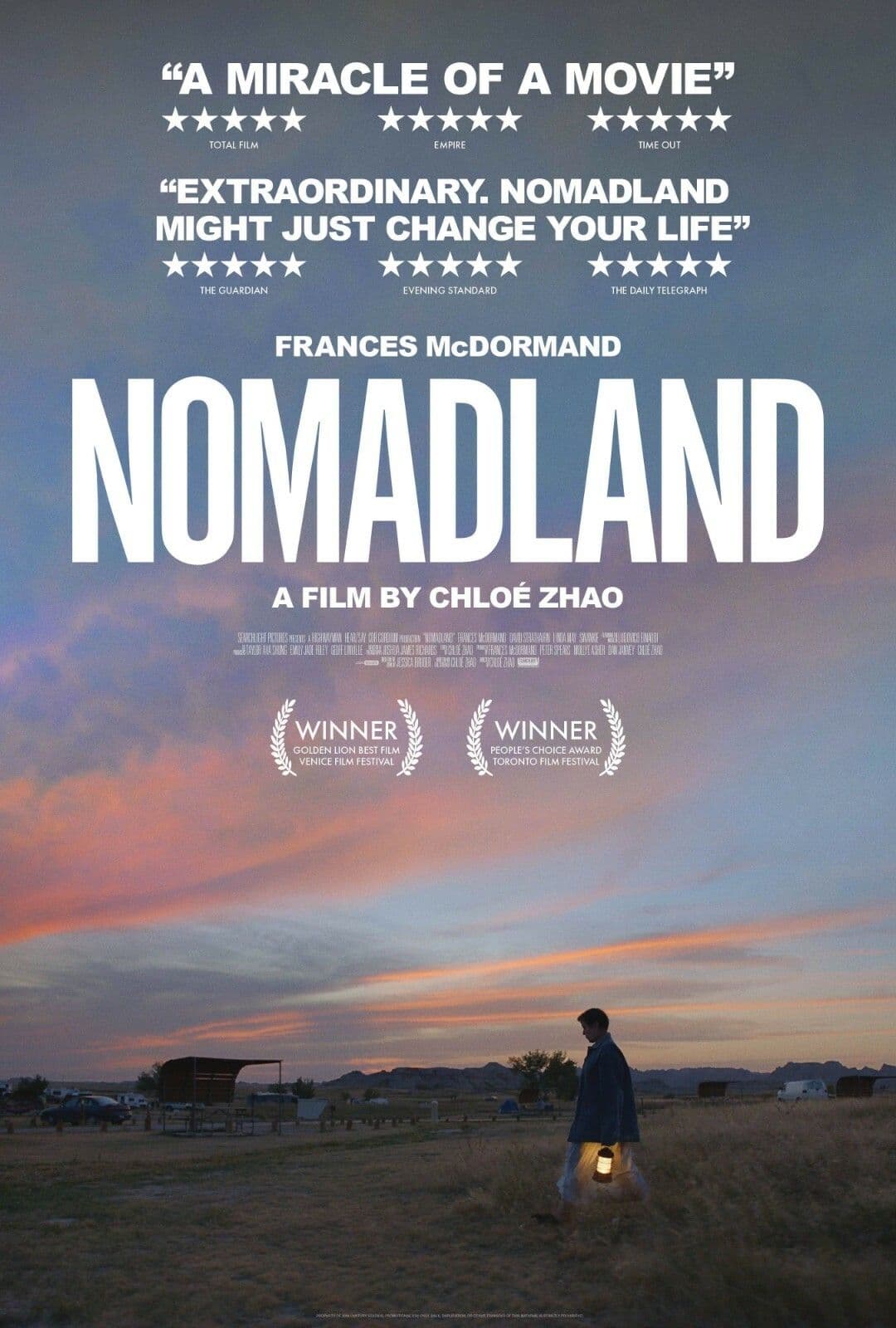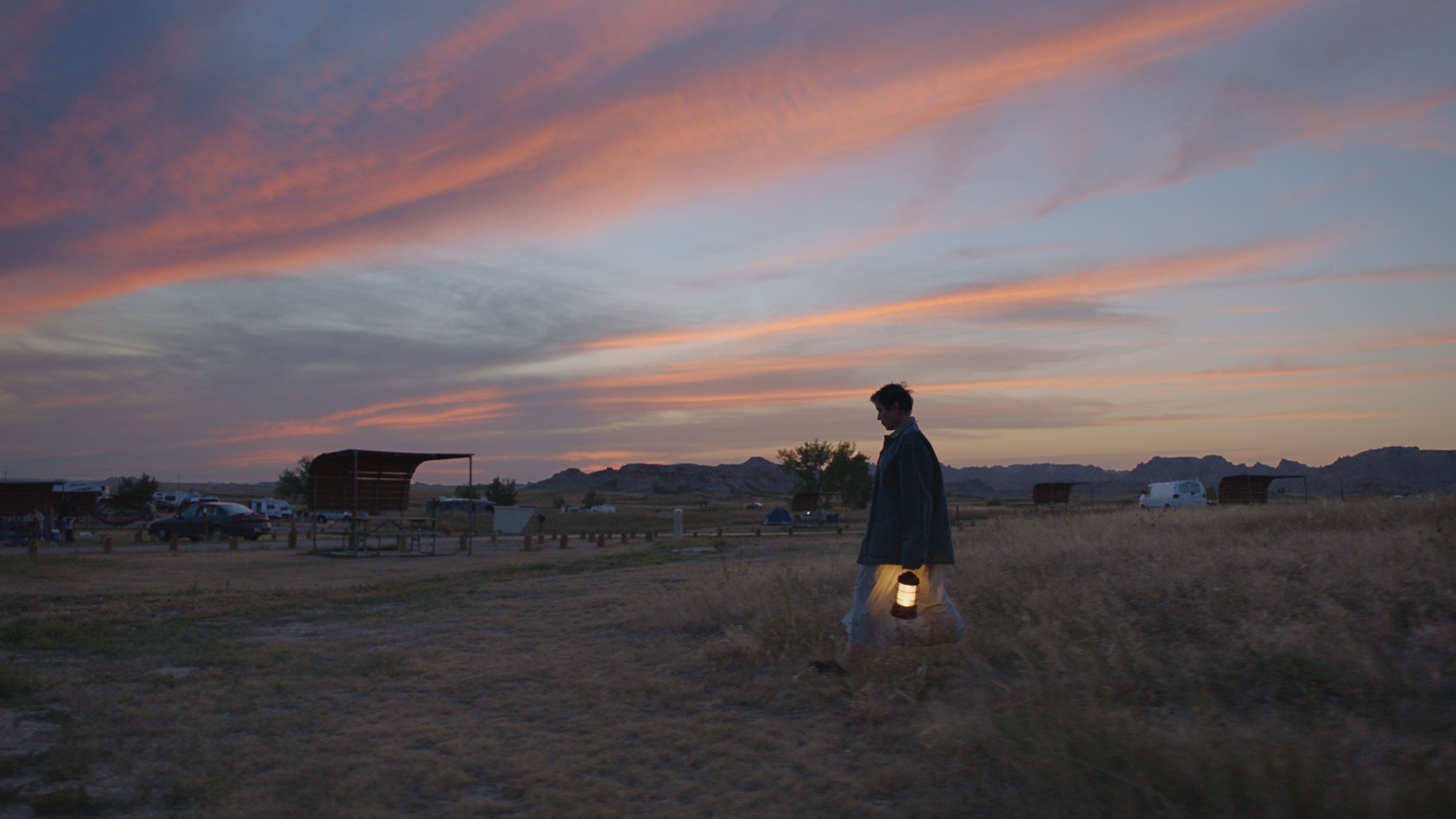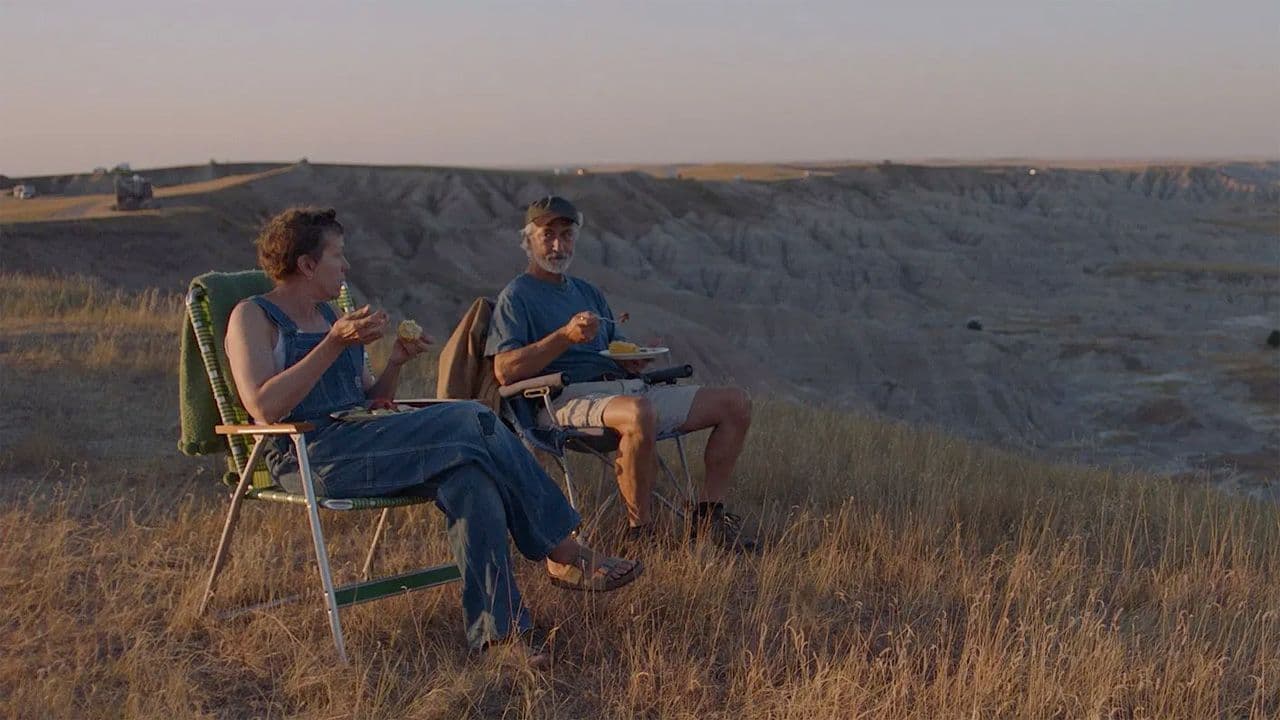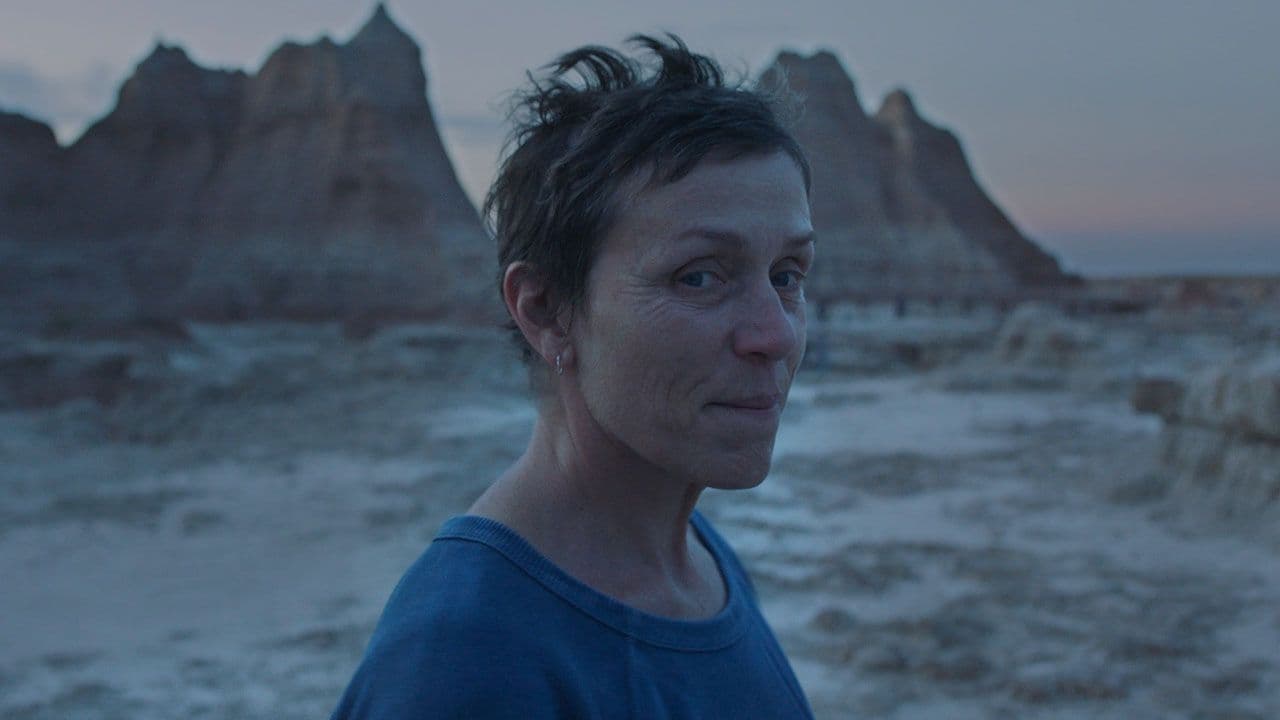
Nomadland
2020
Rate this movie
Average: 3.67 / 5
(3 votes)
Director
In the arid desert of post-industrial existence, where roots sink into the sands of a time that seems to have lost its way, "Nomadland" stands out like a celluloid monolith, an enigma shrouded in the dust of forgotten roads and the deafening silence of a shattered American dream. Chloé Zhao, a true shaman of the seventh art, does not merely paint a picture, but leads us on a visceral and introspective pilgrimage through the most recondite folds of interior America, a human landscape not only scarred but redefined by the deep wounds of the 2008 economic crisis. What for many was the Great Recession, for the protagonists of this story was a veritable implosion of the very concept of stability, forcing entire generations, particularly the elderly who watched pensions and savings vanish, to reinvent their relationship with home, work, and dignity. The film is not just a snapshot of a marginalized reality, but an almost archaeological investigation into the sediments of a consumer culture that has expelled its less functional elements, leaving them to wander at the margins, yet rediscovering in such marginality a new, unexpected form of freedom.
Our guide, on this journey of rediscovery and resilience, is Fern, portrayed by Frances McDormand, whose hieratic and elusive presence manifests with the force of a mirage in the desert. Far from any hysteria or easy sentimentalism, McDormand, already a two-time Oscar winner and executive producer of the film, delivers a performance of disarming sobriety, a tour de force of subtlety that allows the character's soul to emerge through glances, minimal gestures, and eloquent silences. Fern, widowed and unemployed after the collapse of her industrial town, Empire, Nevada, is not simply a victim, but a modern nomad who, with unwavering dignity, embraces precarity not only as a necessity but as a lifestyle, almost a philosophical declaration. Aboard her van, christened with a name as evocative as Vanguard – avant-garde, precursor – she traverses a marginal and often invisible America, populated by wandering souls who, though driven by economic necessity, have rediscovered or chosen the ambiguous and complex freedom of voluntary exile. Theirs is not a flight, but a radical redefinition of the parameters of existence, a reversal of the concept of stability in favor of an existential fluidity, where the sky is the roof and the road the true home.
Zhao's camera, in an ode to observational cinema, moves like a discreet and almost imperceptible eye, capturing without judgment the poignant and desolate beauty of the American Midwest landscapes – silent vastness, rosy sunrises, fiery sunsets – and the silent but unshakeable dignity of its inhabitants. The director's approach, which in some ways recalls Italian neorealism or Terrence Malick's cinema in its contemplation of landscape as a state of mind, merges with an almost documentary sensibility, focusing not so much on an intricate plot as on the authenticity of lived experiences. The dialogue is sparse, essential, chiseled with the precision of haikus, like words whispered around a dying fire on a starry night, revealing more in the implicit than in the explicit. Joshua James Richards' cinematography is an exercise in visual lyricism that enhances every speck of dust and every ray of light. And then there is the soundtrack, by Ludovico Einaudi, whose ethereal and melancholic resonance, far from being a mere accompaniment, becomes a character in itself, an emotional undercurrent that evokes the infinite void of open spaces, but also the unexplored depth of the souls that cross them, transforming the absence of boundaries into a promise, rather than a threat.
"Nomadland" is, by its very essence, a film that elegantly rejects easy labels and superficial categorizations. It is not a documentary in the strict sense, yet it courageously and sensitively embraces the reality of true nomads – many of whom play themselves, such as Bob Wells, a community guru, or Swankie and Linda May – who lend the narrative a layer of authenticity rarely seen in contemporary cinema. But neither is it pure fiction, detached from reality. It is a sublime hybrid, a daring work that blends the rough grain of reality with the polished texture of poetry, the most intimate introspection with the keenest observation. This approach, which echoes and actualizes the precepts of neorealism and cinema verité, creates a bridge between individual experience and social phenomenon, making every encounter Fern has with other nomads a fragment of universal truth. It is an initiatory journey not only for Fern, but for the viewer themselves, a hypnotic and unsettling immersion into a parallel world, almost a counter-universe, where the tacit and often oppressive rules of consumer society no longer apply, and where an individual's value is not measured by their bank account or the size of their house, but by their ability to survive, to connect, and to find meaning in the absence of any material superstructure.
The film, with a delicacy that does not conceal its conceptual strength, deeply questions us about the primordial meaning of home – no longer a physical place delimited by four walls, but an existential condition, a mobile and interior refuge – of community – reinvented as an ephemeral but vital support network, a human anchor in a sea of solitude, where mutual aid and tacit understanding transcend blood ties – and of identity – stripped of every social or professional label, reduced to its most vulnerable and authentic essence. In an era obsessed with possession and accumulation, "Nomadland" stands as a beacon of counter-trend, showing us with the clarity of spring water that happiness, or at least serenity, does not necessarily reside in the possession of material goods, in adherence to predetermined models of success, but rather in the unyielding capacity to adapt to change, to navigate the unpredictable flow of existence, to find one's own path – literally and metaphorically – in the complex and often cruel labyrinth of post-capitalist existence. It is a hymn to stoic resilience, a meditation on the ephemeral nature of attachment and on the eternal search for meaning, a call to the essential that resonates with the echo of transcendentalist philosophers like Thoreau, who found true freedom in the solitude of nature.
In summary, "Nomadland" is not just a film; it is a rare and precious cinematic experience, a work that, with its inexorable beauty and touching humanity, leaves an indelible mark on the viewer's soul, long after the credits have faded. It is a subtle but powerful ode to human dignity in the face of adversity, a warning against homogenization and a whispered invitation to reconsider life's true values. This masterpiece by Chloé Zhao invites, almost compels, us to reflect deeply on our human condition, on our intrinsic fragility in the face of social and economic changes, but also on our immense and often unexplored inner strength, on the ability to reinvent ourselves, to flourish even in the dust. It is not a film about despair, but a moving and inspiring hymn to unconditional resilience, to the hope that is reborn with every dawn on desolate lands, and to a freedom that is not the absence of constraints, but the conquest of oneself in a world that seems to have forgotten the value of the wandering soul. It is cinema that breathes, that lives, that speaks to us, beyond every border.
Genres
Country
Gallery




Featured Videos
Official Trailer
Comments
Loading comments...